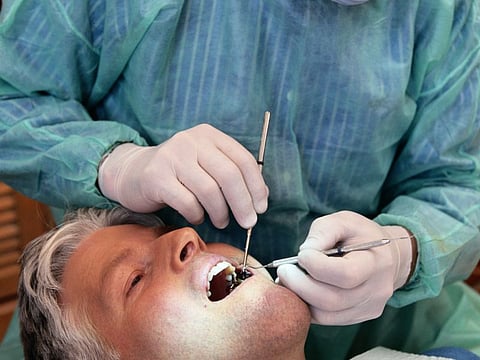TUESDAY, July 21, 2020 (HealthDay News) -- Periodontal disease and tooth loss, indicative of oral microbial dysbiosis, are associated with esophageal and gastric adenocarcinoma, according to a research letter published online July 20 in Gut.
Chun-Han Lo, M.D., from the Harvard T.H. Chan School of Public Health in Boston, and colleagues conducted a prospective examination of the correlation of periodontal disease and tooth loss with the risk for esophageal and gastric adenocarcinoma in 98,459 women from the Nurses' Health Study and 49,685 men from the Health Professionals Follow-up Study.
The researchers documented 199 cases of esophageal adenocarcinoma and 238 cases of gastric adenocarcinoma during 22 to 28 years of follow-up. A history of periodontal disease correlated with significantly increased risks for esophageal and gastric adenocarcinoma (multivariable-adjusted hazard ratios, 1.43 and 1.52, respectively). The risk for esophageal adenocarcinoma was significantly increased for those who lost two or more teeth compared with those with no tooth loss (adjusted hazard ratio, 1.42); the risk for gastric adenocarcinoma was increased, but not significantly so. Compared with individuals with no history of periodontal disease and no tooth loss, those with a history of periodontal disease and no tooth loss or at least one tooth lost correlated with an increased risk for esophageal adenocarcinoma (adjusted hazard ratios, 1.59 and 1.59, respectively); similarly increased risks were seen for gastric adenocarcinoma (adjusted hazard ratios, 1.50 and 1.68, respectively).
"These data support the importance of oral microbiome in esophageal and gastric cancer," the authors write.
One author disclosed financial ties to the pharmaceutical industry.
Abstract/Full Text


